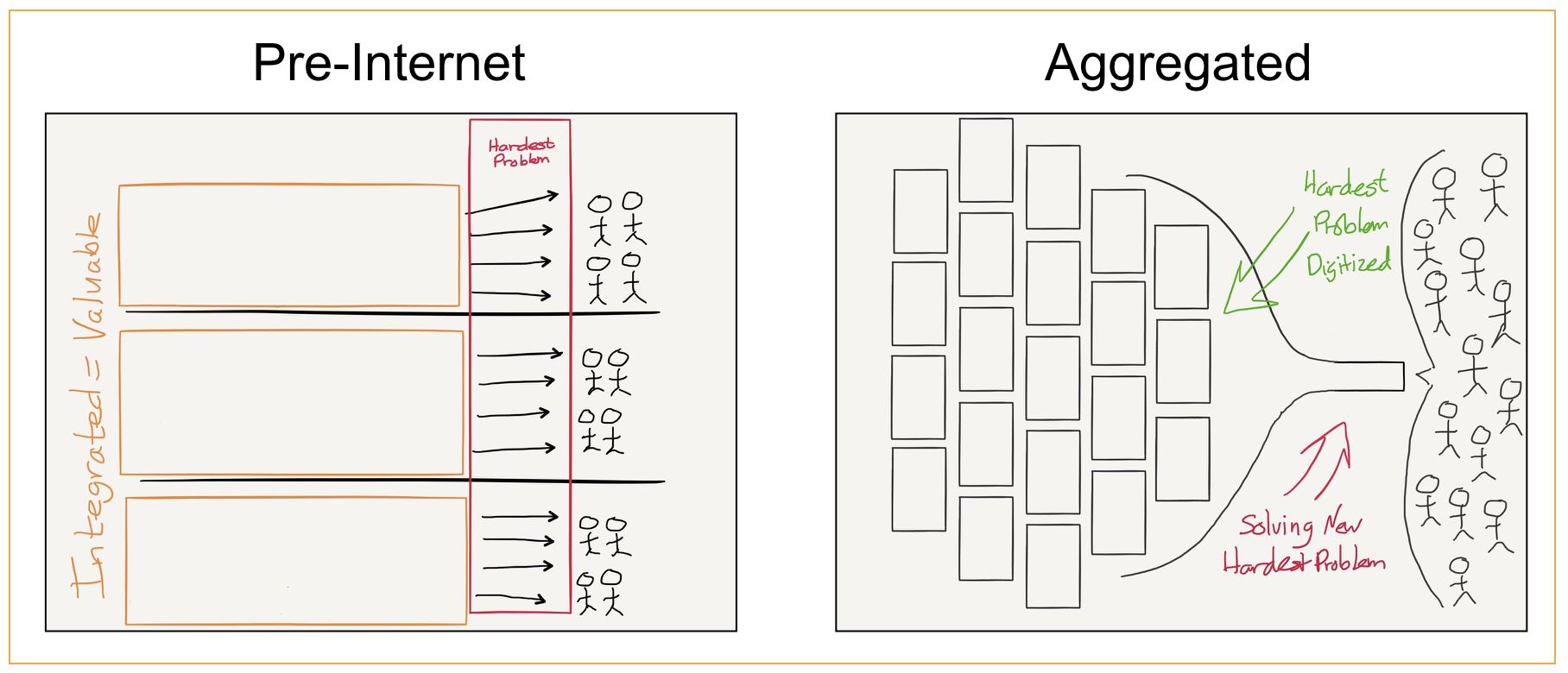The Great Flattening

🌈 Abstract
The article discusses the impact of the internet and technology on the concept of "specialness" and the democratization of content and creativity. It explores how the internet has flattened various industries, leading to the commoditization of content, services, and experiences. The article also examines Apple's controversial iPad ad and how it reflects this broader trend of the "flattening" of everything.
🙋 Q&A
[01] Aggregation Theory
1. What is the fundamental disruption of the internet according to the article?
- The internet has turned the dynamic of distribution and transaction costs on its head:
- The internet has made distribution of digital goods free, neutralizing the advantage of pre-internet distributors.
- The internet has made transaction costs zero, making it viable for distributors to integrate forward with end users/consumers at scale.
2. How has this disruption changed the plane of competition?
- No longer do distributors compete based on exclusive supplier relationships, with consumers/users as an afterthought. Instead, suppliers can be commoditized, leaving consumers/users as the first-order priority.
- The most important factor determining success is the user experience, as the best distributors/aggregators/market-makers win by providing the best experience, which earns them the most consumers/users and attracts the most suppliers.
3. How has the internet flattened various industries?
- Google broke down every publication into individual pages, search results no longer delivered you to the front page.
- Facebook promoted user-generated content to the same level as professional publications.
- Amazon created the "Everything Store" with practically every item on Earth.
- Netflix transformed "What's on?" to "What do you want to watch?", putting everything on equal footing.
- Sites like Expedia and Booking changed travel from an adventure mediated by a travel agent to search results organized by price and amenities.
[02] The Bicycle for the Mind
1. What was Steve Jobs' view on the role of computers as a "bicycle for the mind"?
- Jobs believed that computers are tools that amplify human abilities to spectacular magnitudes, just as a bicycle amplifies human locomotion efficiency compared to walking.
- He saw the computer as a tool that can take humans far beyond their inherent abilities, and that we are still in the early stages of this transformative technology.
2. How did Jobs' introduction of GarageBand for iPad reflect this view?
- Jobs was moved by the fact that GarageBand allowed anyone, even teenagers, to make music and learn about music on a device as thin and light as the iPad.
- This aligned with Jobs' vision of the computer as a "bicycle for the mind" that empowers people and expands their creative potential.
[03] After the Flattening
1. How does the article view the duality of the impact of technology?
- The article acknowledges that the impact of technology is both structural and amoral - it can eliminate friction and value, but also create new opportunities.
- While the internet has commoditized content and reduced "specialness", it has also created new forms of content and expanded opportunities for creators.
2. What are the two potential paths for the future of AI according to the article?
- AI could become a "bicycle that we control", empowering and expanding human capabilities.
- Alternatively, AI could become an "unstoppable train to destinations unknown", where a small number of entities "own" AI and we are used by it on their terms.
- The article suggests the latter path, driven by calls for "safety" and regulation, may be the default without a conscious choice for the former, more open and commoditized approach.